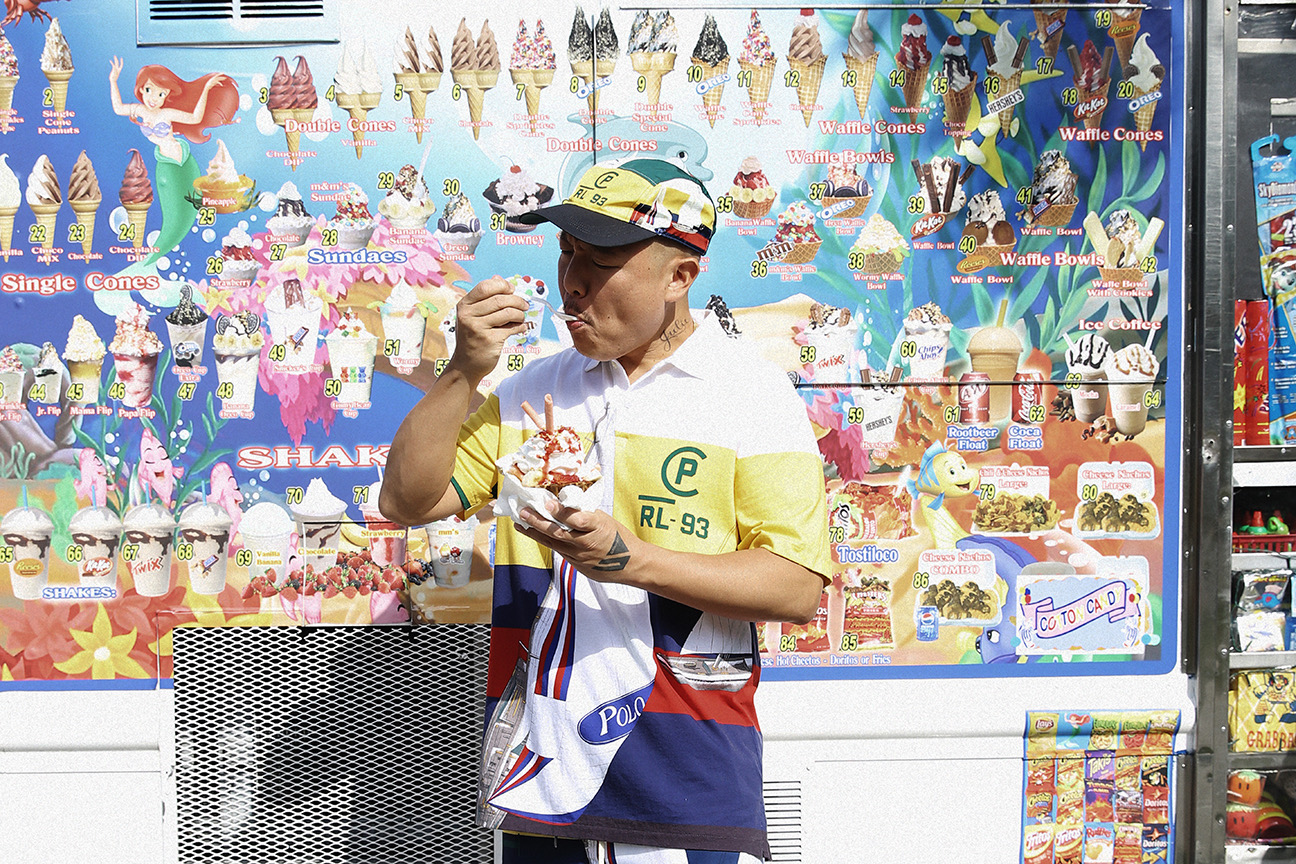Eddie Huang Uses Food to Tackle Immigration, Representation in ‘Cash Only’
By Ellis Clopton
LOS ANGELES (Variety.com) – Everybody’s gotta eat.
Chef and TV host Eddie Huang believes food is the world’s universal language, something which unites every person, regardless of race, creed or sexual orientation.
Huang hopes to put that belief to the test with his upcoming show, “Cash Only,” a reality travel show (produced by Propagate) where he explores the kitchens of immigrant-owned restaurants not just in America, but around the world. His goal, he says, is to tackle issues of multiculturalism and through food.
“It’s food, it’s sex, it’s music — those are the universal languages,” Huang tells Variety. “[Food] is the language that, despite where you’re from or what your politics are, you can put it in your mouth and you can understand it.”
The chef and restaurateur cut his teeth in the television world by adapting “Fresh of the Boat,” his memoir of growing up the son of Chinese-Taiwanese immigrants, into an ABC sitcom and showcasing the best restaurants coast to coast on Viceland’s “Huang’s World.” Now, he says he wants to showcase a world of he thinks is overlooked.
Immigrant food cultures, he says, are unique in that they often rely on creativity through necessity. Without many resources, they have to squeeze every bit of juice out of the lime and use every part of the butchered pig.
“It’s not like a performative chef-driven farm-to-table thing, it’s like I’m serving my kids pig ears tonight. It’s a food of necessity, and I gotta figure out how to make this taste good, and I gotta squeeze every bit of nutrition and sustenance out of this,” Huang says. “Through that struggle, I think you get some of the best bites you’re every going to have.”
Huang aims to use “Cash Only” to re-frame modern American fears by exploring the immigrant experience around the world.
“We’re not just going to focus it on America, we’re gonna go to Russia. In Russia, the working class is primarily from the Central Asian countries, people coming in doing the hard jobs. In Sicily, there’s a lot of North Africans,” Huang said. “When you start to see people of different ethnicity that are immigrants that are doing those working class jobs in other countries, you’ll be able to see a reflection of them and maybe it will move you regarding your American politics.”
But at the heart of “Cash Only,” it’s still all about the food. He aims to showcase food that immigrants may be afraid to show off. He said immigrants often serve food to non immigrants that they think they’ll like, but will hide away what they really enjoy for fear of judgement.
“This show is a real journey to say OK these are the things you know this place for, I know what dominant cultural people come into this country and want, but I want to know what locals love,” Huang said. “What is it that you love that you might be scared of showing people? What is it that you love so much that you are worried other people may ruin it for you? That’s what I want to know.”
Huang also hopes his show can provide audiences with an authentic representation of the immigrant experience, which he says Hollywood still hasn’t been able to do successfully. He’s been outspoken in the past about his dissatisfaction with the ABC adaptation of “Fresh of the Boat,” and he said Hollywood often tries to include token minorities without giving them unique voices or utilizing their perspectives.
“The way that people in Hollywood a lot of times deal with identity and people of color or sexual orientation and gender, it’s like checking off a box. I’ve got a black person, I’ve got a white woman, I’ve got an Asian in here, this show is gonna be great, right?” Huang said. “You’re really treating people like you’re collecting us. Just because you collected a bunch of people with diverse points of view doesn’t mean you’re going to make a great show that represents any of their experiences.”
Huang said he approaches his interview subjects in “Cash Only” much like celebrity chefs Andrew Zimmern and Anthony Bourdain.
“They don’t make people embarrassed or ashamed of their stuff. They’re always proud of the people cooking around the world,” Huang said. “There’s no desire or attempt to be condescending or go to another country and be superior.”
After a season of traveling around the world and trying new foods, Huang says he continually came back to the same conclusion: everyone’s gotta eat.
“It’s just somebody’s luck when it comes to the country they’re born into,” he says. “If we stop being afraid of being ourselves, I think we will all start to understand each other a lot more.”

